- Home
- Joel C. Rosenberg
The Persian Gamble Page 2
The Persian Gamble Read online
Page 2
The fifty-six-year-old physicist stood in the center of the corner suite on the fourth floor of the Electra Palace hotel. He was surrounded by banks of video monitors, recording devices, wireless receivers, and miles of electrical cords duct-taped to the plush carpet. He was surrounded, too, by nine men, each brandishing automatic weapons, all staring back at him.
His own eyes were bloodshot. His nerves were frayed. But his voice was defiant after months away from his lab and the sole remaining love of his life.
What he said was all true. Dr. Mohammed Yakub, one of the most important players in Pakistan’s nuclear weapons program—a protégé of Abdul Qadeer Khan, whom he nearly worshiped as the “father of the Sunni Bomb”—had done everything they had asked of him. Actually, he had done quite a bit more.
He was being paid a small fortune for his efforts, and all of the funds were neatly stashed away in untraceable Swiss bank accounts. But Yakub had never been driven by money. He had put in eighteen- to twenty-hour days since his undergraduate life solely due to his pure love of science and his deep love of country. He’d helped Khan create a nuclear arsenal to protect Pakistan from India, from China, from the Soviets, from the Americans, and from anyone else who might seek to take advantage of them or even threaten their existence.
Now, however, he was a widower, and a recent one at that. He was the grieving father of an only child, a breathtakingly beautiful young woman who was not really a child any longer but who needed—and more importantly, wanted—her father at her side.
Yakub knew he was approaching his breaking point. He had not made any significant missteps in the negotiations thus far. But the more fatigued he became, the more anxious he became, the greater the risk he would lose focus and make not simply a mistake but one that could prove fatal.
“Mohammed, Mohammed,” said the dark man sitting in the corner, holding a secure satellite phone in one hand. “You need to take a deep breath and trust me. I am listening to you, to every syllable, and I give you my word: I’m going to do everything in my power to ensure that you make it to your daughter’s wedding. Indeed, I have booked reservations for you on six different flights over the next forty-eight hours. All first-class. Any one of them will get you there on time. So believe me when I tell you everything is going to work out just fine.”
Slowly Yakub’s irritation drained away, replaced by a profound sense of sadness. His shoulders sagged, and his eyes grew moist. “She’s all I have left,” he said, staring at his shoes.
The dark man stood and walked to the center of the room. “I know, Mohammed, and I am sorry for your loss. We all are. Your wife was a remarkable woman. We were all fortunate to know her, however briefly.”
“Thirty-seven years,” Yakub said, shaking his head and taking a handkerchief from his pocket to dab his eyes. “Then one day you wake up, and she does not. You make all these plans for retirement, for your lives together when your child is grown and it’s just the two of you. And then in a single, unspeakable moment . . .”
His voice, almost a whisper now, trailed off, and the room was silent.
“My daughter needs me,” Yakub finally said, pocketing the cloth and composing himself.
“And come this time tomorrow,” said the unit commander, a man half Yakub’s age, “you’ll be back in Islamabad, back in that lovely villa of yours, a rich man, hosting your new in-laws-to-be, and never having to think about any of . . . this . . . again.”
Still, the man with three PhDs could not let it go. “What if he makes new demands?” Yakub pressed, looking up again, his eyes narrowing. “What if he quibbles over the changes we’ve already agreed to?”
“He won’t.”
“How can you be sure?”
“Because he wants this more than you do, Mohammed, and his superiors want this even more than he does,” the commander said, stepping closer and grasping the physicist by his shoulders. “Trust me, sir. Tonight, you two are going to consummate this deal. You’re going to shake hands. You’re going to give him the bank codes. He’s going to transfer the money. Chick-chock. Your part will be over, and my men will whisk you to the airport.”
“You’re certain of this?”
“Absolutely.”
“Tonight?”
“No question.”
Still the Pakistani was not completely convinced. “But you’ve made five other airline reservations,” he said.
“Just in case,” said the commander.
In case of what? Yakub thought, but he said no more.
Alireza al-Zanjani lit a fresh cigarette.
Dressed in a finely tailored Parisian suit, his jet-black hair slicked back with a touch of gel, he stared at the flame of the match for several seconds, then extinguished it with his thumb and forefinger. He glanced at his Rolex, then sat back and closed his eyes. It was nearly one in the morning. But there was no need to worry, he told himself. His guest would be on time, and it would all be over soon.
Though he had never been to Athens before, he refused to look out across the twinkling lights of the Greek capital from the rooftop restaurant on the fifth story of the five-star Electra Palace hotel. The stunning view of the Acropolis interested him not at all. The stars were out and the air was fresh. But he couldn’t have cared less that the Parthenon stood before him, so close in the summer moonlight that he could nearly reach out and touch it. The “temple of the virgin goddess,” built some five centuries before the birth of Christ, held no special fascination for him.
He was not a tourist. He had not come for the view. He was the newly appointed deputy commander of the Iranian Revolutionary Guard Corps, and he had come to finish the business his predecessor had not.
“Sir,” one of his bodyguards whispered. “He’s approaching.”
Al-Zanjani opened his eyes, took another drag of his cigarette, then stood. He turned in time to see the diminutive Pakistani—wiry and habitually disheveled—stepping off the elevator, alone. The man was met by four IRGC operatives, all in suits far less expensive than that of their boss. They asked Yakub to show his ID. They instructed him to hand over his mobile phone and patted him down for weapons.
Satisfied, the head of the security team nodded and said in Farsi, “He’s clean.”
Finally, al-Zanjani thought. All of his painstaking work and exhaustive preparations had come down to this moment. He had the green light from his superiors back in Tehran. The time for talking was over. It was time to do business.
3
“Welcome, my friend,” al-Zanjani said in heavily accented English.
His smile was wide, his open arms wider still. “Come, join me on the balcony.”
He watched carefully as Dr. Mohammed Yakub crossed the restaurant. There were no patrons present, just an elderly manager and a lone waiter. Both stood off to the side, mute but ready to serve. The only other men in the large room were al-Zanjani’s security detail, positioned at the two stairwells, by the door to the kitchen, and by the elevators.
As Yakub came closer, al-Zanjani saw the man’s eyes riveted once again—as when they had first met months before—by the four-inch scar running down the left side of his face, only partially obscured by the thick beard. The Iranian no longer felt any physical discomfort from the scar but never failed to notice its effect on others.
When the Pakistani scientist reached the round table covered in a crisply starched white tablecloth and set for two, his smile seemed forced. He and al-Zanjani embraced and kissed each other on both cheeks.
“Assalamu alaikum,” said the Iranian, bidding his guest to take a seat.
“Wa-alaikum assalam,” Yakub replied, putting his hand to his heart and then taking his assigned chair.
Al-Zanjani wasted no time on small talk. “Let’s be honest, my friend. There are only two ways for a nation to acquire atomic weapons,” he said, almost in a whisper. “Build them or buy them.”
“Well, maybe three,” Yakub said softly. “One could always steal them.”
The com
ment was clearly made in jest, but al-Zanjani neither laughed nor cracked a smile. He was not a lighthearted man to begin with, and in any case, this was not the night to indulge in humor. He ignored the remark and pressed on. His patience was thinning, and the hour was late. “The Western powers made us a very generous offer to persuade us to refrain from building nuclear weapons,” he said. “Yet, remarkably, they never actually insisted that we refrain from purchasing them. They effectively gave us what amounts to $150 billion, and for what? To buy our assurances that we would stop enriching uranium for a decade? To rent our promise not to build any nuclear warheads? Why would we have said no? The whole thing was a farce. We were not even asked—how does the saying go?—to sign on the dotted line.”
“So, you took their money and came to me,” the bespectacled Pakistani said.
“Of course we took the money—we’re not fools, Mohammed,” the Iranian replied, taking another drag on his cigarette. “Yet as I recall, you came to us.”
“Well, that’s true. I did.”
“My question is this: Why did you choose to bestow upon my people such magnanimity?”
There was a long, awkward silence.
“Let’s just say I saw an opportunity,” the Pakistani finally replied. “Look, I’ve already told you, my retirement is fast approaching. My mentor, Dr. Khan, received all the glory for our work, and rightly so. I’m not looking for fame. I’m not looking to be heralded or even remembered. But after all I have given to my country, I deserve to live in comfort and provide my daughter and her husband a comfortable life. This is impossible on a government pension. So I asked for more. Khan said no. I went above him but was repeatedly told that I’d been paid handsomely and should be content. Well, I am not content. You can understand such a thing, can you not?”
“I can,” al-Zanjani said.
“Of course you can. You’re much younger than me, to be sure. But you’re a husband. You’re a father and a loyal government servant, too. You’re not trying to get rich, or you would have chosen a different profession. But you like to dress nicely. You have an expensive watch. You clearly enjoy the finer things, as well you should.”
The Iranian said nothing.
“But that’s not all,” Yakub added. “It’s not just about the money. I find myself seething that no one has stood up to the Zionists. No one has really shown them their place. Maybe you can. And if I can play some small part, then all the better. So, my friend, enough talk. Let’s get this thing done.”
The Iranian nodded. “Let’s.”
“If you’re ready to move the money, my colleagues and I are ready to move the merchandise immediately.”
“The money is ready.”
“Very good,” Yakub said, reaching into his pocket to fetch a folded piece of paper, which he handed to al-Zanjani. “The banking details,” he said. “It’s all there.”
“Fine,” al-Zanjani said as he slipped the paper into his breast pocket without opening it. “And yet my superiors have some concerns.”
Yakub looked confused. “Concerns?”
“Tehran wants ironclad guarantees.”
“I told you before,” Yakub said, “we can get you the first ten warheads within twenty-four hours of receipt of payment and the next ten within ten business days. I can’t do any better than—”
“No,” al-Zanjani interrupted, speaking more forcefully than he’d intended. “We need other assurances.”
“Assurances?” Yakub’s hands were now clasped together as if to keep them from shaking. “What about the assurance you gave me? You know I’m taking an enormous risk meeting you here. You insisted I come, yet you assured me that if we met in person, we could complete this deal once and for all tonight.”
“And so we shall,” al-Zanjani said. “I just need you to answer one simple question.”
“What question is that?”
“Are you working for the Israelis?”
The blood suddenly drained from Yakub’s face. “What are you talking about?” the Pakistani stammered.
“You heard me.”
“I heard you. I just don’t believe you.”
“That’s not exactly a denial, now is it, Mohammed?”
“Have you gone mad?”
“It’s a simple question. Yet you haven’t answered it.”
“I’m not going to play any more games with you. Do you want my merchandise or not?”
For the first time in all the months they had been negotiating this deal, al-Zanjani smiled. He’d seen the Pakistani’s photographs of twenty gleaming new nuclear warheads. He’d seen the blueprints of the bombs, the specifications, the schematics, the mountains of test results. He’d listened to Yakub explain how his people would sneak the weapons out of Pakistan, through the mountains of Afghanistan, and into Iran. He’d seen his previous boss salivate at it all, as had their superiors in Tehran. It had all seemed so promising, this offer to bypass years of expensive and exhausting technical development—and setbacks—in a single, seamless transaction.
Yet al-Zanjani had never believed any of it. He just hadn’t been able to prove any of his suspicions. Until now.
He took a final drag on his cigarette, snuffed it out on the sole of one of his handcrafted Italian loafers, then stood. As he did, he unbuttoned his jacket, drew a silenced pistol, aimed it at the Pakistani’s forehead, and squeezed the trigger. With a puff of pink mist, the man slumped to the ground.
“Not,” al-Zanjani said, nearly under his breath.
He turned on the wide-eyed manager and waiter standing near the kitchen doorway. He double-tapped them both to the chest, then pulled a mobile phone from his pocket, speed-dialed a colleague, and said, “Now.”
From the roof of a darkened office building adjacent to the Electra, six rocket-propelled grenades came sizzling through the night sky. One by one they smashed through the windows of the corner suite one floor below al-Zanjani and his men. The ensuing explosions made the hotel rock and sway, nearly knocking the Iranians off their feet. Moments later, al-Zanjani heard machine-gun fire erupt in the hallway below. He closed his eyes and imagined the survivors of the corner suite crawling through the smoke and debris, groping their way to safety, only to be cut down by his team, lying in wait.
Again he smiled. Then he glanced at his watch one last time and counted silently—one, two, three, four—and then another massive explosion split the night. The Iranian casually strode to the edge of the balcony and looked down to find a white rented van that had been parked across the street from the hotel, now a twisted pile of flaming metal.
The mobile phone in al-Zanjani’s hand rang. He answered it immediately.
“It is finished,” said the voice at the other end.
On the contrary, the Iranian said to himself. It has only just begun.
4
PANGHYON AIR BASE, NORTH KOREA—5 SEPTEMBER
24 DAYS BEFORE THE RUSSIAN PRESIDENT’S ASSASSINATION
The Mi-8 transport helicopter touched down just before four in the afternoon.
Alireza al-Zanjani stepped out into the sunshine carrying a single overnight bag. He was glad to stretch his stiff legs and pleased to be back at the heavily guarded air base nestled in a densely wooded valley outside the city of Kusŏng, North Korea. Just over seven weeks had passed since his final encounter with Dr. Yakub in Athens. Now he was on the brink of completing his mission and fulfilling his nation’s dreams at last.
Al-Zanjani was immediately welcomed and saluted by General Yong-Jin Yoon, a three-star who had served for the past three years as North Korea’s deputy chief of military intelligence. The Iranian returned the salute and shook the man’s hand. Having made this exact trip a dozen times over the past several years, there was no need to be introduced to the general’s driver or young translator. Instead, the men climbed into the back of the general’s sedan.
“I trust your trip was pleasant, Mr. Ali,” the general said as they drove off the tarmac onto a service road.
Al-Zanja
ni smiled at the nickname chosen by Yoon upon their first meeting in the general’s main suite of offices in Pyongyang. “To be honest with you, it was a nightmare.”
Except he wasn’t being honest. Al-Zanjani had started his journey more than a week earlier and had loved nearly every minute. To cover his tracks and elude any and all foreign intelligence agencies, he’d left Tehran alone, traveling without a security detail. He’d flown first to Venezuela. For that leg, he’d used the alias of a South African businessman, complete with a disguise and fake passport. After spending several lovely days lounging by the pool at the home of a dear childhood friend whose father was the Iranian ambassador in Caracas, he’d flown to Johannesburg, where he’d enjoyed several days at the sumptuous Four Seasons, dining at the finest restaurants and nightclubs, all at the IRGC’s expense. The call girls and the liquor he’d happily paid for out of his own pocket.
From there, he had switched identities and begun using a separate set of forged passports, flying to Moscow and meeting with several of his counterparts in Russian intelligence, members of President Luganov’s inner circle whom he liked very much and trusted implicitly. Then it was on to Beijing, where he’d spent twenty-four hours making certain no one was on his tail. That morning, he’d awoken early, gone for a long run before the heat and smog became unbearable, then showered, had a light breakfast, and enjoyed a massage before finally heading for the airport and boarding an aging Tupolev twin-engine jetliner that felt like it was being held together with bobby pins and duct tape. Upon deplaning in the North Korean capital, he’d been met by an air force colonel who had whisked him to a waiting chopper for the brief hop to Panghyon.
So why hadn’t al-Zanjani simply said all that to his North Korean colleague? The general could certainly be trusted. They were working together on the most sensitive of secrets. Surely the Iranian’s travel schedule was not something the general would leak or use against him. Yet even as he flat-out lied to a man he had come to consider a friend, he found himself asking this very question.

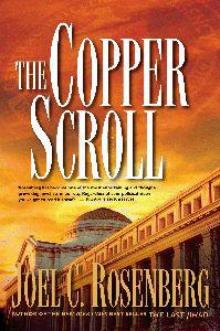 The Copper Scroll
The Copper Scroll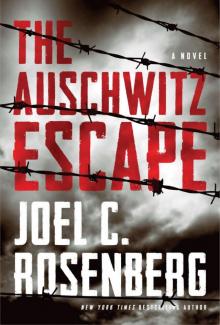 The Auschwitz Escape
The Auschwitz Escape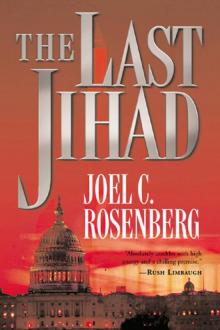 The Last Jihad
The Last Jihad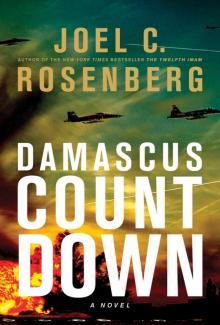 Damascus Countdown
Damascus Countdown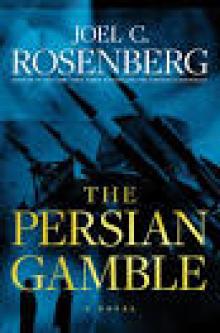 The Persian Gamble
The Persian Gamble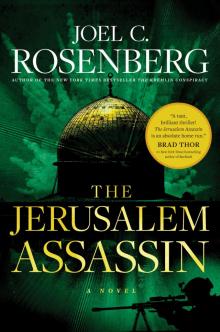 The Jerusalem Assassin
The Jerusalem Assassin Dead Heat
Dead Heat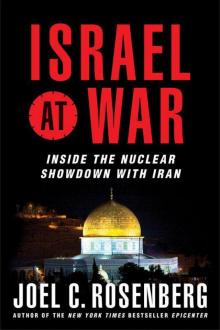 Israel at War: Inside the Nuclear Showdown With Iran
Israel at War: Inside the Nuclear Showdown With Iran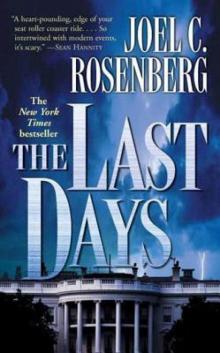 The Last Days
The Last Days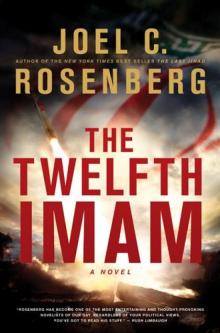 The Twelfth Imam
The Twelfth Imam Epicenter 2.0
Epicenter 2.0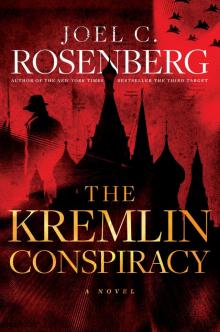 The Kremlin Conspiracy
The Kremlin Conspiracy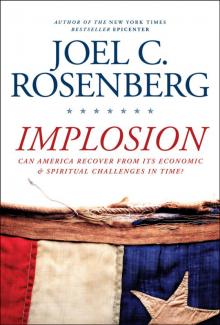 Implosion: Can America Recover From Its Economic and Spiritual Challenges in Time?
Implosion: Can America Recover From Its Economic and Spiritual Challenges in Time?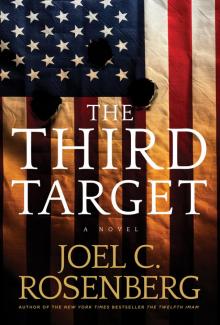 The Third Target: A J. B. Collins Novel
The Third Target: A J. B. Collins Novel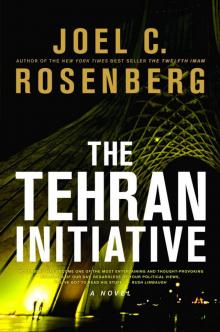 The Tehran Initiative
The Tehran Initiative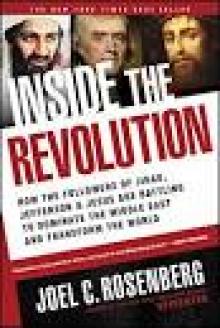 Inside the Revolution
Inside the Revolution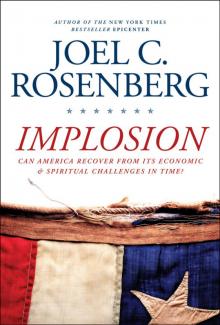 Implosion
Implosion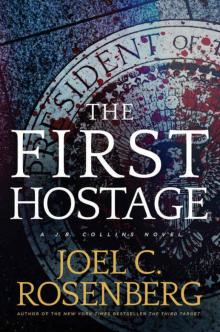 The First Hostage: A J. B. Collins Novel
The First Hostage: A J. B. Collins Novel